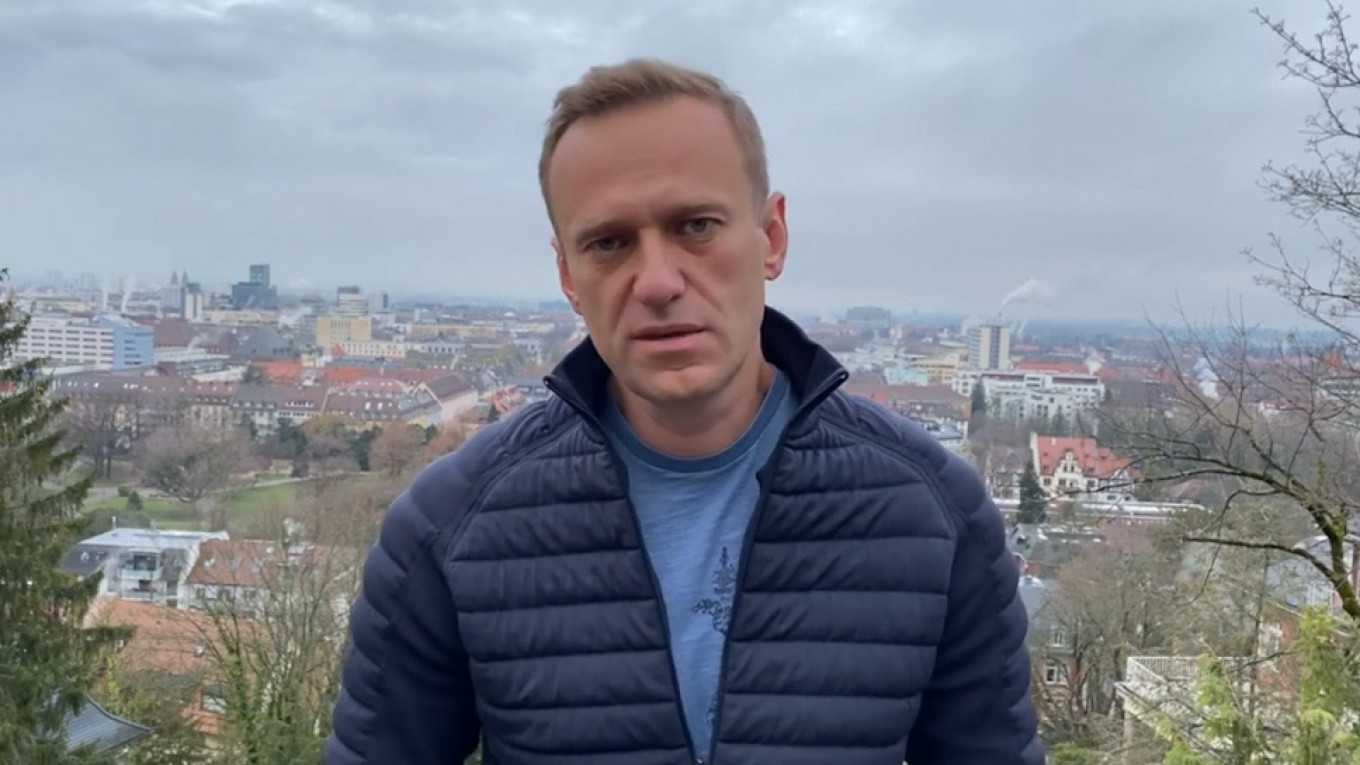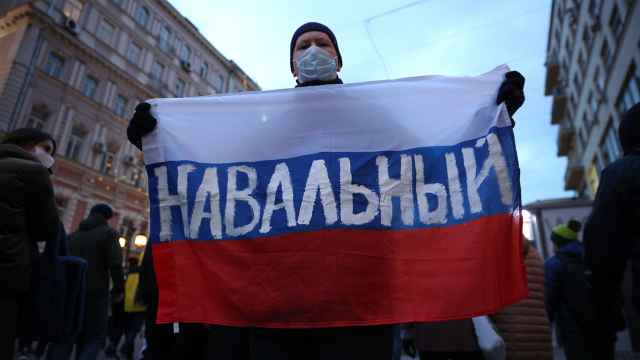"Meet me." With those two little words — actually, just one word in Russian – Navalny announced his return to Russia, after more than four months spent recuperating in Berlin from an attempt to poison him with the nerve agent Novichok.
Exactly who Navalny expects to meet him when his plane lands at Moscow’s Vnukovo Airport on Sunday —assuming everything goes to plan — is another question.
Opposition supporters on social media have clearly taken his message as an invitation to show up, despite predicted temperatures of minus 20 degrees, and welcome him. Most commentators, however, expect Russian law enforcement to roll out its own welcome mat.
In other words, things could get awkward, and that’s the point. Navalny’s return to Moscow – defying the expectations of just about everyone, except perhaps his own — throws down a gauntlet both to the Kremlin and to the Russian public, and thus forces a reckoning. Is either side up to the challenge?
Short of revoking his passport, the Kremlin has done just about everything it can to encourage the man it refers to only as “the Berlin patient” to stay away.
Authorities have moved to convert his suspended sentence in the Yves Rocher “fraud” case — a case in which the alleged victims claimed no damages — into a custodial one, on the argument that Navalny failed to check in with his probation officer while in Berlin.
He faces a potentially bankrupting libel claim from troll farmer and military contractor Yevgeny Prigozhin, as well as ongoing criminal investigations into alleged embezzlement by his Anti-Corruption Foundation, among others.
He will almost certainly find himself in court shortly after his return, if not in prison.
Part of Navalny’s gamble, though, is that the Kremlin has already played its hand — and that it may not be willing to up the ante.
Having evidently tried and failed to kill Navalny once, assassination can’t be ruled out, but it would be rather blatant. A jail sentence ahead of parliamentary elections later this year, moreover, could only be interpreted as a signal that the Kremlin is actually afraid of the threat Navalny poses.
Leaving him free to operate, though, runs the risk of making those elections even more difficult for United Russia than they are already likely to be.
In other words, none of the Kremlin’s options are good.
But there are three players in this game, and the Kremlin’s is not the only bluff Navalny seems to be calling. Russian citizens, he seems to believe, hold a better hand than they’re letting on, and yet they refuse to play it.
Can Navalny’s return – and the law-enforcement reaction it provokes — spark a change of tack?
There have been no polls published since New Year’s, but regardless of whose data you look at, Vladimir Putin’s approval ratings closed out 2020 only very slightly above their all-time lows — 60% according to FOM, 65% according to the Levada Center, 61% according to VtSIOM.
Navalny’s appeal — and that of the opposition more broadly — is predicated on the notion that much of that residual support for Putin rests on the lack of an alternative. As a result, Navalny, like every Russian opposition leader before him, has struggled to make Russians believe that he could be that alternative, and that electing him would make any difference.
By bucking everyone’s expectations, Navalny is evidently trying to change how the Russian public themselves see the game. Even as he dares the Kremlin to arrest him (or worse), Navalny is daring opposition-minded Russians to do something about it — to meet him where Russian politics is at the moment, rather than waiting for him (or another leader) to move it somewhere else.
Navalny and his supporters need not look far for precedent.
Patient “satisfaction” with Belarusian President Alexander Lukashenko collapsed under its own weight in August — not because Svetlana Tikhanovskaya was the opposition leader Belarusians had been waiting for, but because she was the leader when they grew tired of waiting.
Whatever power Lukashenko now clings to, his fate rests in the hands of his citizens.
For years, first by focusing on potholes, then on corruption, Navalny has tried telling Russians how poorly their country was governed.
The problem, of course, was that Navalny rarely told people anything they didn’t already know. A relatively small number of Russians, however, gradually came to believe that if Navalny were ever elected, things might get better — and that number was evidently enough to spook someone in the corridors of power into trying to kill him.
Now, though, he is in essence allowing the state to do the talking. Much as Lukashenko proved he was a dictator by meting out extraordinary violence on peaceful protesters, Navalny can let Putin — whether by poisoning or prosecution — tell the real story of Russian politics to anyone who cares to see it.
The next act in that drama will play out on Jan. 17 at Vnukovo. The only question is, will there be anyone there to see it?
A Message from The Moscow Times:
Dear readers,
We are facing unprecedented challenges. Russia's Prosecutor General's Office has designated The Moscow Times as an "undesirable" organization, criminalizing our work and putting our staff at risk of prosecution. This follows our earlier unjust labeling as a "foreign agent."
These actions are direct attempts to silence independent journalism in Russia. The authorities claim our work "discredits the decisions of the Russian leadership." We see things differently: we strive to provide accurate, unbiased reporting on Russia.
We, the journalists of The Moscow Times, refuse to be silenced. But to continue our work, we need your help.
Your support, no matter how small, makes a world of difference. If you can, please support us monthly starting from just $2. It's quick to set up, and every contribution makes a significant impact.
By supporting The Moscow Times, you're defending open, independent journalism in the face of repression. Thank you for standing with us.
Remind me later.








